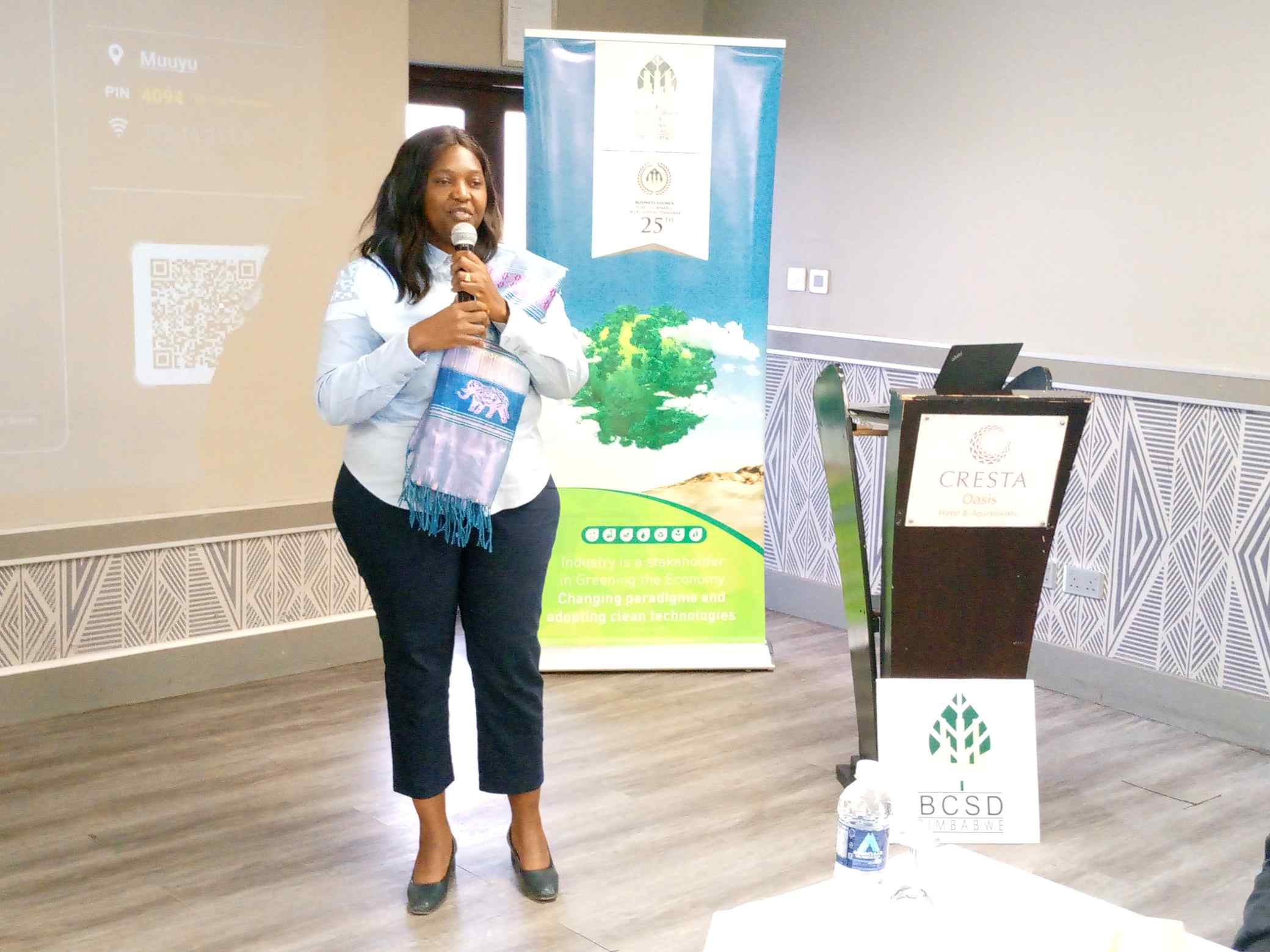|
Getting your Trinity Audio player ready…
|
Driven by the need to halve emissions within the next decade to become a net-zero world by 2050 and avoid climate change, carbon financing plays a critical role in achieving this objective.
This came out during a half-day workshop organised by the Business Council for Sustainable Development Zimbabwe (BCSDZ) held in Harare today to unpack the recently launched Carbon Trading Framework of Zimbabwe to the business community of Zimbabwe.
In her address today, Veronica N. Jakarasi, the Head of Climate Finance of Africa Enterprise Challenge Fund said climate change risks and impacts are extremely becoming more complex and more difficult to manage hence the need for rapid and deep emissions cuts and accelerated action to adapt to climate change to limit the most severe risks.
“Climate finance is aimed at reducing emissions and enhancing sinks of greenhouse gases and reducing the vulnerability of and maintaining and increasing the resilience of, human and ecological systems to negative climate change. These are financial resources required to cover the costs of transitioning to a low-carbon and climate change resilient economy,” Jakarasi said.
The climate change expert said carbon trading ushers in a new development paradigm that requires a dramatic increase in climate finance.
“It is evident that we need to halve emissions within the next decade to become a net-zero world by 2050 and avoid climate change. We need every resource and strategy brought into play, especially those that bring much-needed funding to projects in marginalized communities.
“The ability of the carbon markets to quickly and steadily provide funding for climate solutions cannot be understated. With proper due diligence and an understanding of how the project is delivering climate benefits, carbon credits are a measurable solution that businesses can turn to in order to mitigate the effects of climate,” she added.
A carbon credit/offset is a generic term for any tradable certificate representing an action intended to compensate for the emission of carbon dioxide into the atmosphere as a result of industrial or other human activity, especially when quantified and traded as part of a commercial scheme.
In simple terms, a carbon credit or offset represents a reduction in or removal of greenhouse gas (GHG) emissions that compensates for CO2 emitted somewhere else.
The instruments do have two major attributes in common. One carbon credit or offset equals one tonne of carbon emissions. Once a carbon credit or offset is purchased and the CO2 is emitted, that credit is “retired” and cannot be sold or used again. A carbon offset refers to the removal of GHGs from the atmosphere. A carbon credit is a reduction in GHGs released into the atmosphere.
Speaking on the same occasion, Tatenda Gotore, a member of the Socio-Ecological Observatory for Studying African Woodlands (SEOSAW) of the University of Witwatersrand in South Africa said deforestation accounts for about 11% of global emissions, while in Zimbabwe, 39.7% of emissions are from forestry and other land uses – mainly deforestation and forest fires.
“Nature-based solutions including forestry-related activities provide about 30% of global emission reductions. In Zimbabwe’s revised NDCs they stand at 60%. Forests and land use projects have an important role in climate change mitigation and adaptation.
To be considered successful, he said carbon projects must meet stringent criteria.
While Zimbabwe did not benefit much from carbon trading under the Kyoto Protocol, the country has taken great initiatives to benefit from the market mechanism under the Paris Agreement.
Zimbabwe currently has only one registered project on forestry, which is already operational in the Kariba National Park Corridor. In May 2023, Zimbabwe launched the Carbon Credit Framework (CCF). The CCF for Zimbabwe provides guidance for participation in both the Voluntary and Compliance Markets.
Businesses in Zimbabwe have an opportunity to participate as project developers, end buyers, retail traders, brokers, and standards developers or implementers. Today’s workshop on the Carbon Credit Framework for Zimbabwe was meant to improve awareness and, as well enhance the capacity of businesses to participate in carbon trading.
